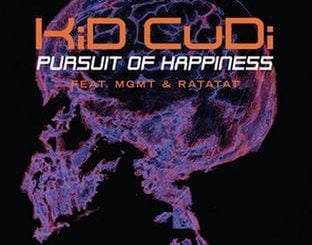Love Always Remains by MGMT Lyrics Meaning – The Timeless Quest for Connection and Solace
Lyrics
It’s not specific, and the pictures show it best.
I know there’s trees I know there’s sand and I know there’s grass,
I know it’s somewhere in the past.
There’s a girl out there who’s lookin for it too,
She’s not sure when she’ll go or exactly what she’ll do.
If I am doomed am I the first on or the last?
Am I just someone from the past?
No one has to hear, the sound of people laughing at their fear, and the ocean and sun are always there, to make you happy if you’re feeling scared of the darkness.
If I ever saw a ghost it’d change the way I think.
I wouldn’t gasp for air if ever I did sink.
I wouldn’t struggle, I’d just let it all out fast,
And then start living in the past.
If we hold the hand that rapes the hand,
And everyone can feel the hand,
And nothing’s gonna change,
It could be the time we’re living in,
We’ll never feel so safe again,
But love always remains
In their track ‘Love Always Remains,’ MGMT delves into a complex exploration of nostalgia, the human condition, and the perennial comfort provided by love. This song, nestled within the framework of their dreamy psychedelic soundscape, serves as a vessel transporting listeners to spaces confined neither by time nor reality.
The lyrics present a mosaic of imagery and sentiment that, when pieced together, form a profound statement about our intrinsic search for a place—a state of being—where fear is eclipsed by the abiding presence of love. What follows is a decoding of MGMT’s poetry that blurs the lines between the corporeal and the metaphysical.
A Nostalgic Journey to the Untouched West
MGMT encapsulates the longing for a return to an untouched, idealized version of the West—a place of unblemished nature and boundless freedom. The lyrics describe an undefined destination, one romanticized through photos, yet anchored firmly in reality through sensory elements like trees, sand, and grass. The deliberate vagueness invites the listener to project their personal utopias onto the canvas of the song.
The allure of this personal paradise is tied to its existence ‘in the past,’ suggesting a sentimentality for times before complexity poisoned simplicity. It is a yearning for an era or place which, perhaps, never existed, but one where the identity isn’t constructed by contemporary pressures but inherent peace.
The Shared Quest: Companionship in Seeking the Sublime
The ‘girl out there’ represents every person’s quest for their utopia and the significance of that shared human experience. It underscores the connection between people as they navigate uncertainty—both in timing and in action. This journey, although individualized, is a collective march towards a truth we all seek.
There’s a sense of predestination in these lines. Whether we interpret ourselves as ‘doomed’ or merely participants in a cyclical historical process, there is solace in recognizing others are on a similar path. The lines bridge personal isolation with a more universal narrative, highlighting the interconnectedness of our individual quests.
A Haunting Realization: Ghosts and the Release of Fear
The confrontation with a ‘ghost,’ a metaphor for facing our deepest fears, marks a transformative moment. It suggests an existential enlightenment where acceptance of the inevitable — the sinking and the descent into the past — leads to liberation. The imagery conveys the idea that true freedom comes when one stops fighting the current of life.
This poignant verse engages with the concept that our fears and the subsequent release from them are what define our lived experiences. The artist implies a sort of defeatist, yet peaceful resignation, a conscious decision to embrace the end and its lessons, thereby offering a pathway to transcend the mundane struggles.
Dissecting the Paradox: The Hand that Hurts is the Hand that Heals
Arguably one of the most enigmatic sections of the song, the ‘hand that rapes the hand,’ conveys a dichotomy of harm and support. This paradoxical configuration might be a commentary on the complexities of human relationships and society—where the very sources of our despair might also be our greatest allies in times of need.
The lyrics suggest a resignation to the contemporary state of the world as one marked by paradox, a world unable to change yet inherently dynamic. It invites a reflection on the duality of existence, a recognition that life’s most profound truths are often steeped in contradiction.
The Enduring Light in the Dark: Love’s Timeless Presence
Amid the profound ruminations on existence, the song arrives at a simple yet monumental conclusion: ‘love always remains.’ Love is the constant through shifts in time, the touchstone that can revive safety even when we are most vulnerable.
This lyrical aphorism acts as a thesis statement for the song, tying back to the tranquility suggested by the ocean and the sun in earlier verses. It reinforces the notion that regardless of life’s vicissitudes, love—whether it be romantic, platonic, or even self-love—offers a refuge, a consistent beacon amidst life’s ephemeral nature.








